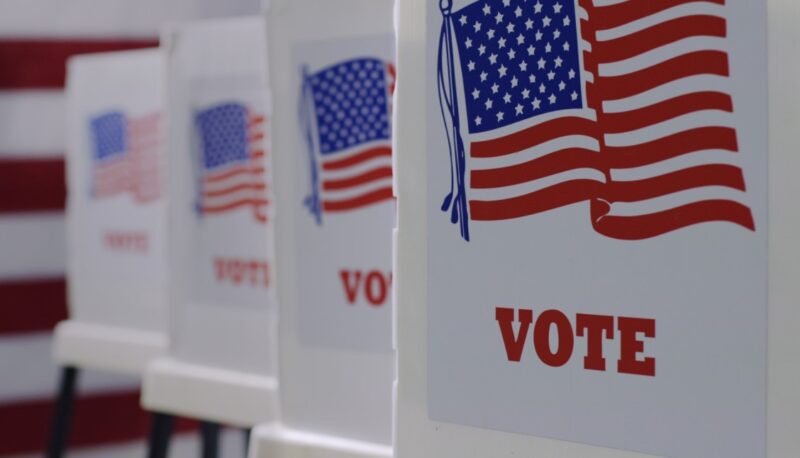All levels of government have a role to play in defending our democracy, from town councils all the way to the president. Last March, President Biden issued an executive order, Promoting Access to Voting, directing “an all-of-government effort to promote information about the voting process and to further the ability of all eligible Americans to participate in our democracy.”
Since then, agencies across the federal government have worked to understand the voting barriers impacting their constituents. Last week, amid ongoing commemorations of the executive order’s first anniversary and the 57th anniversary of the Selma-Montgomery marches, came several new announcements.
Voters with Disabilities
The National Institute of Standards and Technology (NIST) released a new report, Promoting Access to Voting: Recommendations for Addressing Barriers to Private and Independent Voting for People with Disabilities, identifying more than twenty specific barriers to voting for people in the disability community. They include ineffective training for poll workers on people’s varied needs as well as problems with the voting technology itself.
The NIST report goes through every aspect of the voting process: vote by mail, voting technology for in-person voting, polling locations, as well as training and documentation for poll workers. It points out problems and makes recommendations to eliminate them.
Native American Voting Rights
The president’s March 2021 order also created an interagency steering group on Native American voting rights to study the difficulties faced by Native voters and recommend steps to address them. Their report released last week includes urging Congress to pass the Native American Voting Rights Act, which had been included as part of the Freedom to Vote: John Lewis Voting Rights Act. It also notes that individual states can (and should) pass similar laws, following the lead of Nevada, Colorado, and Washington.
The group also recommended making sure local election offices and polling places are easy to access by the Native communities they serve; adding routes, staff, and additional hours for the United States Postal Service offices serving Native communities; and ensuring availability of ballot translation materials for areas serving Native communities.
Paid Leave for Federal Employees
The Office of Personnel Management also released new guidelines for paid time off for federal employees for elections. Federal employees may now take up to four hours of administrative leave to vote. They may also use four hours of paid leave to serve as non-partisan poll workers or observers.
Voter Registration
Many other agencies have issued guidance so their local offices can become voter registration locations. This includes the U.S. Small Business Administration, Department of Labor, Department of Health and Human Services, Department of Veterans Affairs, and others. The full list of government agency reports can be found on this fact sheet released by the White House.
These reports and recommendations are important. Understanding what prevents people from voting and having their votes counted is a necessary step in fully realizing the promise of our democracy. Now, we need to keep pressure on the White House to ensure the agencies are putting into action the suggestions at the local, state, and federal levels. And we must keep fighting to pass federal voting rights protections, which are urgently needed to protect ballot access for all Americans.
